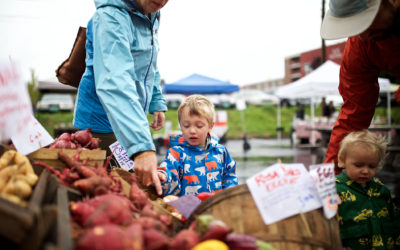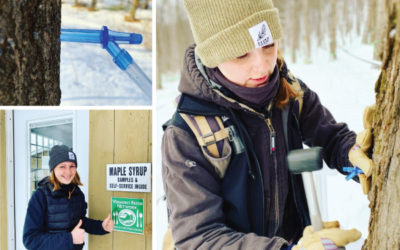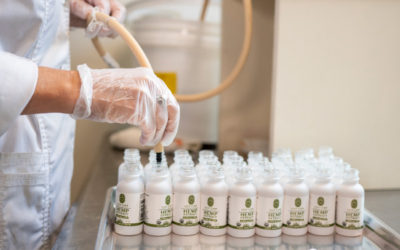Agriculture
Tradition and innovation.53,867
direct Jobs IN agriculture sector (2023)
$2.24B
direct wages
#1
MAPLE PRODUCER IN US
690
usda certified ORGANIC farms
Agriculture in Vermont is steeped in both tradition and emerging innovation.
Vermont’s local food production plays a central role in the state’s culture and daily life, deeply intertwined with its identity and traditions.
Vermont is home to over 6,500 farms with a market value of agricultural products sold totaling more than $1 billion., The market value of crops grown in Vermont, including nursery and greenhouse crops, totaled more than $326 million in 2022. The market value of livestock, poultry and their products, including beef, pork, chicken, dairy and eggs, came to nearly $707 million. The states dairy industry generates over $1.3 billion in annual sales and brings $2.2 billion a year in economic activity to Vermont. Our dairy farms produce about two–thirds of all milk in New England, with much of this being processed in-state into cheese, butter, ice cream, yogurt, and powder. Over 80% of open farmland in Vermont is devoted to dairy production and crops grown for dairy feed. From yogurt makers and farmers to ice cream scoopers and dairy equipment purveyors, some 7,000 jobs, or 2.5% of the state’s workforce, are supported by the dairy industry.
The University of Vermont (UVM) is the nation’s smallest land grant institution with a medical school. UVM Extension focuses on analysis, design, evaluation, and adoption of infrastructure, technology, and equipment to meet the needs of the agriculture sector in a rapidly changing and highly competitive industry. In 2020, the Vermont Agency of Agriculture, Food & Markets provided funding for research and development into areas such as specialty composts to control fungal soilborne pathogens in vegetable crops, and developing Vermont’s saffron industry as a high-value crop for small family farms.
Vermont is home to a vibrant network of food co-ops, locally owned and supported by thousands of members. These co-ops play a significant role in the state’s economy and provide employment for a wide range of people. In addition to co-ops, Vermont boasts a diverse range of retail food establishments, from traditional grocery stores to charming general stores.
Many Vermonters choose to buy food directly from farmers, with a large portion of the state’s farms offering direct sales to consumers. This connection between local farms and communities fosters a strong sense of regional pride and sustainability.
Vermont’s hemp industry is rapidly growing, propelled by the popularity of CBD products. Local hemp producers are gaining recognition for their high-quality products, joining the ranks of Vermont’s well-known organic goods, craft beer, and artisanal cheese. Thanks to the state’s ideal climate, entrepreneurial spirit, and government support, Vermont’s hemp products are poised to make a significant impact in the growing marketplace.
Interested in the agriculture industry but don’t know where to start?
Vermont Businesses Are Hiring:
Further Reading
How to Eat Like a Local in Vermont
The bright rainbow of local produce and the smells of ground coffee and fresh-baked bread make diving into local food a delicious experience. From farmers markets to CSAs to growing your own or dining out, here’s how to eat like a local in Vermont.
Meet the Maple Sugarmaker: Baird Farm
Is there anything more Vermont than making maple syrup? We all look forward to those warmer winter days and cold nights because we know the maple...
Slowing Down to Go Fast: Luce Farm Wellness Rides the CBD Wave
Written by Kelly Nottermann, Communications Director, Vermont Sustainable Jobs Fund | Photo by Erica Houskeeper, courtesy of the VSJF When Rebecca...
We Want You to Succeed in Vermont.



